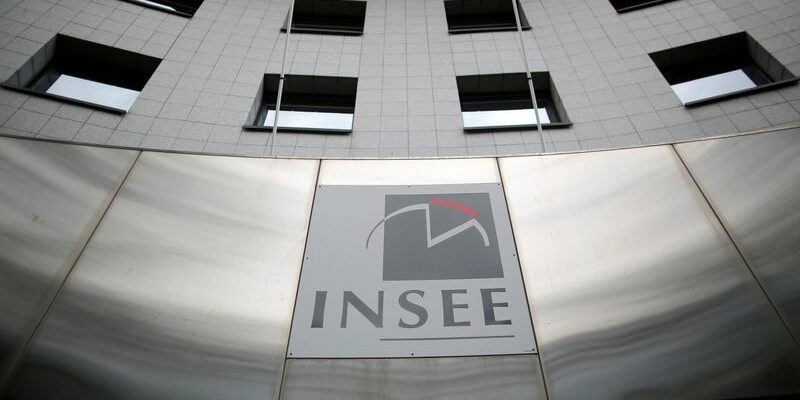PARIS (Reuters) – INSEE on Thursday lowered its growth forecast in 2023 for France, which should nevertheless escape a recession at the end of the year, while the slowdown in inflation should continue despite wage pressures.
France’s gross domestic product (GDP) should increase by 0.8% this year, estimates the statistics institute in its economic update, whereas it previously forecast an increase of 0.9%.
The government, for its part, is counting on growth of 1% this year.
This downward revision is mainly due to a forecast of stable GDP in the fourth quarter compared to the third quarter, compared to a previous estimate of growth of 0.2%.
While GDP contracted by 0.1% in the third quarter, France would thus avoid an economic recession, characterized by two consecutive quarters of decline in activity.
“If household consumption rebounded (in the third quarter), business investment, on the other hand, decelerated and foreign trade deteriorated, weighing on the evolution of GDP,” observes INSEE, which also specifies that activity slowed in industry, services and construction.
In the fourth quarter, “the economic situation remains sluggish”, notes INSEE. Household consumption should be stable from one quarter to the next after increasing by 0.6% in the third quarter, while household investments should fall for the sixth consecutive quarter under the pressure of high interest rates .
INSEE forecasts that economic activity will rebound in early 2024.
“In the first half of 2024, activity should accelerate somewhat (+0.2% forecast per quarter), thanks to disinflation and despite high interest rates,” estimates INSEE, which emphasizes that the slowdown in The pace of price increases will also support consumption.
INFLATION FLASH
In fact, the institute now expects inflation of 3.7% over one year in December, compared to a previous forecast of 4.2% and a rate of 3.4% in November.
Food, the main contributor to overall inflation between September 2022 and September 2023, is seeing its prices fall: food inflation would go from 7.6% over one year in November 2023 to around 1.9% in June 2024 , explains INSEE.
However, services inflation is expected to slow more slowly, as the segment represents around half of the consumption basket and has become, since October, the main contributor to overall inflation.
“This stability (…) would come first of all from the slower transmission of input prices. Furthermore, the weight of the wage bill is greater in services and wage increases would remain relatively sustained over the long term. forecast”, explains the institute.
INSEE forecasts that the real average salary per capita will increase by 0.2% in the fourth quarter of 2023, then by 0.5% in the first quarter of 2024, after two consecutive quarters of contraction.
(Written by Corentin Chappron, edited by Blandine Hénault)
Copyright © 2023 Thomson Reuters
